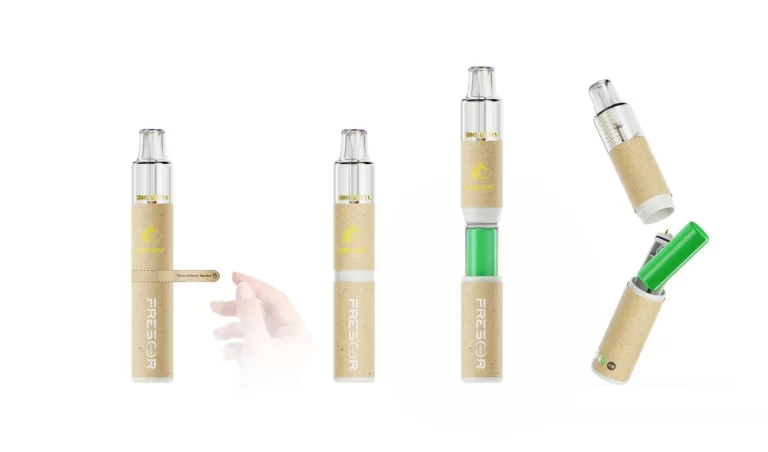Nicotine affects the body quickly. It moves through the blood soon after vaping. It’s important to know how long nicotine from vaping stays in your body. It changes based on a few things. These include how often you vape, how fast your body works, and your health. Knowing this can help with health choices. It can also help you get ready for tests or to quit smoking. Let’s find out how long does vape nicotine stay in your system.
How Much Nicotine is Considered Safe?
There is no universally safe nicotine amount. Experts say low doses are less harmful. For some, even small nicotine levels are risky. High nicotine can cause addiction.
Vaping devices deliver nicotine in various amounts. They often have higher levels than cigarettes. This makes it easy to consume excess nicotine. Health effects depend on how much and how usually you vape.
Always monitor your nicotine intake. Low doses can minimize risks. If you feel side effects, reduce usage. Quitting smoking or vaping completely is the best choice. This avoids all nicotine-related risks.
Factors Influencing Nicotine Retention in the Body

Nicotine is a highly addictive substance that can have serious health consequences if consumed in excess. The amount of nicotine retained in the body after vaping depends on several factors, including the frequency of use, the concentration of nicotine in vape juice, individual nicotine metabolism, and hydration levels.
Frequency of Vaping
Regular users of tobacco products are more likely to have higher levels of nicotine in their system compared to occasional users. This is because frequent vaping leads to a buildup of nicotine in the body over time. On the other hand, those who only vape occasionally may have lower levels of nicotine in their system due to less frequent consumption.
Nicotine Concentration
The concentration of nicotine in vape juice varies among different brands and types. Some juices may contain higher levels of nicotine than others. It’s important for users to be aware of the nicotine concentration in their vape juice and to choose lower levels if possible to minimize risks.
Individual Metabolism
Individual metabolism also plays a role in how long nicotine stays in the body. People with faster metabolisms may break down and eliminate nicotine quicker than those with slower metabolisms. This can affect the duration of time that nicotine remains in the system.
Hydration Levels
Staying hydrated is important for overall health, but it can also impact how long nicotine stays in the body. Drinking plenty of water can help flush out toxins, including nicotine, through urine and sweat. On the other hand, dehydration can slow down this process and prolong the presence of nicotine in the body.
How Long Does Nicotine Stay in Various Parts of the Body?
Nicotine does not remain in the body uniformly; its retention varies across different organs and systems. In the bloodstream, nicotine is typically present for a short duration—usually 48 hours to 20 days— you can test positive during this period, after which it is metabolized into cotinine. This byproduct stays in the blood for up to a few days.
In contrast, the liver processes nicotine and its metabolites more rapidly due to its role in filtering blood and breaking down substances, typically eliminating them within 48 hours.
In the lungs, nicotine and its byproducts can linger longer, especially for regular vapers, as the substance deposits in the lung tissue and is gradually released into the bloodstream. Nicotine can be stored in fatty tissues, leading to extended retention times; it can take up to three weeks for significant amounts to diminish.
The brain, being highly sensitive to nicotine, experiences its effects quickly, though the actual substance is usually eliminated within a day; however, traces can remain detectable for a longer period due to slower metabolic processes in the central nervous system.
Types of Nicotine Tests: Blood, Saliva, Urine, and Hair

Nicotine can be detected in the body through various tests, each with its unique features and accuracy levels. The most common types of nicotine testing are:
- Blood Tests: These are considered highly accurate and can detect nicotine and its metabolites within hours after consumption.
- Saliva Tests: Less invasive than blood tests, saliva tests can detect nicotine and its metabolites for up to four days.
- Urine Tests: Commonly used due to their non-invasive nature, urine tests can detect for up to three weeks after usage.
- Hair Tests: Providing the longest detection window, hair tests can identify nicotine use for up to three months.
Nicotine can remain in the body for different amounts of time based on the type of drug test used. In blood and urine tests, nicotine can show up for up to 10 days after use. Saliva tests can find nicotine for around 4 days, while hair tests can reveal nicotine for as long as a year.
It’s essential to note that even small amounts of exposure to secondhand smoke can result in positive drug test results. Additionally, nicotine can be passed through breast milk and be detectable for around 120 minutes after smoking or vaping.
How Nicotine Tests Work and the Accuracy of Each Method
A Nicotine test works by detecting cotinine, a metabolite of nicotine, in the body. Cotinine remains present in the body for longer periods than nicotine itself, making it an ideal indicator of nicotine consumption. However, it’s important to note that these tests are not always 100% accurate and can be influenced by various factors such as individual metabolism and levels of hydration.
Blood Test
Blood tests assess the levels of nicotine and its main metabolite, cotinine. Due to the rapid absorption and metabolization of nicotine, blood tests offer a high level of accuracy and can measure nicotine levels soon after consumption. However, they are more invasive and require professional administration.
Saliva Test
Saliva tests are easy to administer and cause less discomfort compared to blood tests. They measure both nicotine and cotinine levels and can provide results relatively quickly. While not as accurate as blood tests, they offer a good balance of convenience and reliability.
Urine Test
Urine tests are commonly utilized because they are non-invasive and offer a long detection window. By identifying both nicotine and cotinine, these tests can detect nicotine usage up to three weeks after the last use. However, the accuracy can be affected by factors such as fluid intake and the time elapsed since the previous use.
Hair Test
The most extended detection period is offered by hair tests, which can identify nicotine use for up to three months. These tests analyze hair samples for nicotine and metabolites, providing a comprehensive view of long-term nicotine use. However, they are less commonly used due to higher costs and the need for specialized equipment.
Vaping and Nicotine Withdrawal

Nicotine withdrawal occurs when a person who regularly uses nicotine suddenly quit smoking or significantly reduces their intake. Nicotine is highly addictive, causing the body and brain to become dependent on its effects. When nicotine levels drop, the body reacts with various physical and psychological symptoms.
Processed nicotine vaping was initially marketed as a safer alternative to smoking and a potential aid for quitting tobacco products. However, many vapers consume nicotine through their e-liquids, leading to continued nicotine dependency.
Common Nicotine Withdrawal Symptoms
- Cravings: Intense urges to smoke or vape, often triggered by stress, certain environments, or habits.
- Irritability: A significant rise in feelings of anger or frustration.
- Anxiety: Feelings of unease, worry, or panic.
- Sleep Disturbances: Insomnia or irregular sleep patterns.
- Appetite Changes: Increased hunger or weight gain.
- Depression: Sadness or a sense of loss, often accompanied by fatigue.
How Long Do Nicotine Withdrawal Symptoms Last?
Symptoms of nicotine withdrawal usually begin a few hours after the last intake of nicotine. The symptoms typically reach their highest intensity in the first few days and start to lessen after the initial week. However, it’s essential to recognize that the duration and intensity of these symptoms can vary from person to person.
Physical symptoms generally fade more quickly, often within a few weeks. On the other hand, psychological symptoms like cravings, mood swings, and irritability may persist for several weeks or even months. Realizing that these symptoms are temporary and will eventually diminish is crucial for staying motivated and committed to the quitting journey.
Tips to Get the Nicotine Out of Your Body
Quitting nicotine can be a challenging task, especially for those who have been smoking cigarettes for a long time. The addictive nature of nicotine makes it hard to give up without experiencing withdrawal symptoms such as irritability, anxiety, and cravings. However, with determination and some helpful tips, quitting nicotine is achievable.
Consider Smoking Cessation Programs
Smoking cessation programs offer support and resources that can help individuals quit smoking cigarettes successfully. These programs provide personalized plans, counseling sessions, medication options, and support groups. Research shows that individuals who participate in these programs have a higher success rate in quitting nicotine compared to those who try to quit on their own.
Try Nicotine-Free Vaping
A rising number of people who want to quit smoking are now turning to nicotine-free vaping devices as a favored option. Users can experience the sensation of smoking with flavored e-liquids without addictive substances. While research is limited on its effectiveness, many people report successfully transitioning from smoking cigarettes to nicotine-free vaping.
Keep Yourself Busy and Distracted
When trying to quit nicotine, keeping yourself busy can help reduce cravings and prevent relapse. Engage in activities you enjoy, spend time with friends and family, and try new hobbies. Keeping your mind occupied can also improve your mood and alleviate some withdrawal symptoms.
Avoid Nicotine Overdose
Trying to quit nicotine cold turkey or using excessive amounts of nicotine replacement products can lead to a nicotine overdose. Symptoms include nausea, dizziness, headache, and vomiting. Follow recommended guidelines when using nicotine replacement therapy or consult a healthcare professional before making major changes.
Final Talk
Nicotine from vaping can remain in your system for varying durations depending on several factors, including the type of test used and individual differences. Nicotine can generally be detected in urine for up to three weeks, whereas hair tests may show nicotine use for as long as three months. Understanding these timelines and the associated withdrawal symptoms can equip you to navigate the journey of quitting more effectively. Remember, the decision to leave is a significant first step towards better health and well-being.










